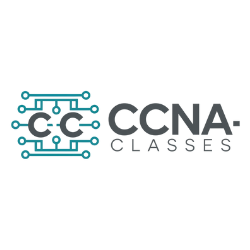Are you feeling anxious about the upcoming CCNA exam? Trust me, I’ve been there. As someone who has successfully conquered the CCNA exam and overcome the anxiety that comes with it, I understand the stress and pressure you may be experiencing. But fear not! In this article, I’ll share my personal tips and strategies for overcoming anxiety before the CCNA exam, so you can approach it with confidence and perform at your best.
Understand the Exam Format
When it comes to overcoming anxiety before the CCNA exam, one of the most crucial steps is to thoroughly understand the exam format. By familiarizing yourself with the structure and content of the exam, you can boost your confidence and performance. Here’s how I approached understanding the CCNA exam format:
Research and Study
I started by doing some extensive research about the CCNA exam format. I visited the official Cisco website and read through the exam blueprint, which provided a detailed breakdown of the topics and subtopics covered in the exam. This helped me gain a clear understanding of what to expect on the day of the exam.
Practice Mock Exams
To further familiarize myself with the exam format, I practiced mock exams. There are several online resources and study materials available that offer sample questions in a format similar to the actual exam. These mock exams not only helped me understand the question types, but also allowed me to gauge my time management skills and adjust my approach accordingly.
Understand the Question Types
Understanding the different question types in the CCNA exam is crucial for success. The exam typically consists of multiple-choice questions, drag-and-drop questions, and simulation-based questions. By practicing these question types, I not only became comfortable with the format, but also developed effective strategies to tackle each question type.
Time Management
Time management is key when it comes to any exam, and the CCNA is no exception. Understanding the exam format helped me create a plan for how much time I should allocate to each section. This allowed me to stay calm and focused during the exam, ensuring that I had sufficient time to answer all the questions.
By taking the time to understand the exam format, you can alleviate anxiety and approach the CCNA exam with confidence. Remember, knowledge is power, and being prepared will significantly increase your chances of success.
| Exam Format | Multiple Choice, Drag-and-Drop, Simulation Based |
|---|---|
| Research and Study | Visit official Cisco website and read the exam blueprint |
| Practice Mock Exams | Utilize online resources and study materials to practice sample questions |
| Understand the Question Types | Familiarize yourself with multiple-choice, drag-and-drop, and simulation-based questions |
| Time Management | Allocate enough time for each section to ensure all questions are answered |
Next, let’s move on to another important aspect of overcoming anxiety before the CCNA exam.
Create a Study Plan
When it comes to preparing for the CCNA exam, having a well-structured study plan is crucial. Here are a few steps I took to create an effective study plan:
- Assess your current knowledge: Start by evaluating your current understanding of the exam topics. This will help you identify which areas you need to focus on the most. Review the exam blueprint provided by Cisco to get a clear idea of the topics that will be covered in the exam.
- Break it down: Divide the exam topics into smaller, manageable chunks. This will make your study plan more organized and less overwhelming. Allocate specific time slots to each topic, ensuring that you dedicate enough time to thoroughly cover each one.
- Set realistic goals: It’s essential to set realistic goals for yourself during your study plan. Break down your goals into smaller milestones, such as completing a specific number of chapters or practice exams within a certain timeframe. This will keep you motivated and give you a sense of accomplishment as you progress.
- Utilize available resources: Take advantage of the variety of study resources available to you. This includes textbooks, online courses, Cisco documentation, and practice exams. Use a combination of these resources to enhance your understanding and reinforce your knowledge.
- Practice, practice, practice: As the saying goes, practice makes perfect. Dedicate time to solving practice questions and mock exams to familiarize yourself with the exam format and improve your problem-solving skills. This will also help you manage your time effectively during the actual exam.
- Stay consistent: Consistency is key when it comes to studying for the CCNA exam. Commit to a regular study schedule and stick to it. Avoid cramming at the last moment, as this can lead to unnecessary stress and anxiety.
Remember, creating a study plan is not enough. It’s important to follow through with your plan and stay disciplined in your approach. By developing a well-structured study plan, you’ll be able to approach the CCNA exam with confidence and significantly reduce exam anxiety.
Break Down the Material
When it comes to preparing for the CCNA exam, one of the key strategies to overcome anxiety is to break down the material into manageable chunks. By doing so, you can study more effectively and feel more confident in your knowledge.
Here are a few steps I recommend to break down the material for the CCNA exam:
- Assess your current knowledge: Start by identifying your strengths and weaknesses in each topic area covered in the exam. This will help you prioritize your study efforts and allocate more time to areas where you need improvement.
- Divide the exam topics: Take the exam blueprint provided by the official Cisco website and break it down into smaller subtopics. This will help you focus on one area at a time and prevent feeling overwhelmed by the vast amount of information.
- Set realistic goals: Set specific and achievable goals for each subtopic. For example, you can aim to understand the fundamentals of a particular networking protocol or practice subnetting exercises for a certain amount of time each day.
- Utilize available resources: Take advantage of study materials, online resources, and practice questions provided by reputable sources. These resources can provide different perspectives and reinforce your understanding of the topics.
- Practice with practice questions and mock exams: Engage in regular practice sessions using practice questions and mock exams. This will not only help you reinforce your knowledge but also familiarize you with the exam format and time management skills.
- Stay consistent: Create a study schedule and stick to it. Consistency is key when it comes to effective exam preparation. Aim for a balanced study routine that allows you to cover a variety of topics while avoiding burnout.
- Follow through with the study plan: Finally, it’s crucial to stay committed to your study plan. Be disciplined and follow through with your goals and schedule. Regularly evaluate your progress and make adjustments as needed.
Practice with Sample Questions and Practice Exams
To further prepare myself for the CCNA exam and build confidence in my knowledge, I find it extremely beneficial to practice with sample questions and take practice exams. This allows me to not only assess my understanding of the material but also get a feel for the format and types of questions I can expect on the actual exam.
Here are a few reasons why incorporating practice questions and exams into my study routine has been crucial for my success:
- Assessment: Regularly practicing with sample questions helps me identify areas where I may be struggling or need additional review. By recognizing these weak spots early on, I can focus my efforts on improving my understanding in those areas.
- Familiarity with Exam Format: Since the CCNA exam follows a specific format, taking practice exams helps me become familiar with the structure, type of questions, and time constraints. This reduces any surprises or anxiety on the actual exam day.
- Time Management: By solving sample questions and practice exams, I can practice managing my time effectively. This is crucial for the CCNA exam, where time is limited. Learning to allocate the right amount of time to each question enables me to complete the exam within the given timeframe.
- Building Confidence: Regularly practicing with sample questions and practice exams helps me build confidence in my knowledge and abilities. As I become more comfortable with the material and consistently perform well on practice exams, my anxiety about the actual exam diminishes.
To make the most of practicing with sample questions and practice exams, I recommend the following strategies:
- Find reputable sources of sample questions that closely align with the CCNA exam’s content and level of difficulty.
- Set aside dedicated time each day or week to solve practice questions and take practice exams.
- Use proper exam simulation tools to replicate the actual testing environment as closely as possible.
- Review my answers and explanations for incorrect responses to identify areas for improvement.
- Keep track of my progress by recording scores and noting areas where I need to focus more attention.
By incorporating regular practice sessions with sample questions and practice exams into my study routine, I am able to reinforce my understanding of the material, enhance my exam-taking skills, and ultimately overcome anxiety before the CCNA exam.
Develop Test-Taking Strategies
When it comes to the CCNA exam, developing effective test-taking strategies can make a significant difference in your performance and help alleviate anxiety. Here are a few strategies I’ve found to be helpful:
- Time management: Time is of the essence during the CCNA exam. To effectively manage your time, practice answering questions under timed conditions. This will help you gauge how long it takes to answer each question and ensure that you’re able to complete the exam within the given time limit.
- Read the questions carefully: It’s essential to read each question carefully before selecting an answer. Pay attention to keywords that can hint at what the question is really asking, such as “not,” “except,” or “best.” This will help you accurately understand and respond to the question.
- Eliminate incorrect answers: If you’re unsure about a question, start by eliminating any obviously incorrect answers. This will improve your chances of selecting the correct answer. Remember, even if you’re unsure, there’s usually a way to narrow down your options and make an educated guess.
- Flag challenging questions: During the exam, if you come across a particularly challenging question that is taking up too much time, flag it for later review. This will allow you to move on to other questions and come back to it when you have more time.
- Manage test anxiety: Test anxiety can be overwhelming, but it’s important not to let it hinder your performance. Practice relaxation techniques, such as deep breathing or positive affirmations, before and during the exam to help calm your nerves and regain focus.
Remember, developing effective test-taking strategies takes practice. Regularly review and practice with sample questions and mock exams to familiarize yourself with the exam format, identify areas that need improvement, and refine your test-taking skills. By incorporating these strategies, you can boost your confidence, improve your performance, and overcome anxiety before the CCNA exam.
Manage your Time and Stress
When it comes to preparing for the CCNA exam, managing your time and stress is crucial. Here are a few strategies that I’ve found helpful in overcoming anxiety and staying on track:
- Create a study schedule: Establishing a study schedule helps you allocate dedicated time to prepare for the exam. I recommend breaking down your study sessions into smaller, manageable chunks. For example, you could study for an hour in the morning and another hour in the evening. Having a schedule not only helps you stay organized but also prevents you from feeling overwhelmed.
- Prioritize the exam-related topics: The CCNA exam covers a wide range of topics, and it’s essential to identify the areas that require more attention. By prioritizing these key topics, you can allocate more time and effort to mastering them. This approach ensures that you have a solid understanding of the most important concepts before moving on to other areas.
- Practice time management: Time management is essential during the exam itself. With a limited amount of time to answer multiple questions, it’s crucial to efficiently allocate your time to each question. I recommend practicing with sample questions and setting a timer to simulate the exam conditions. By doing so, you can develop a sense of how much time you should be spending on each question.
- Take breaks: It’s easy to get overwhelmed and burnt out when studying for long periods. Taking short breaks during your study sessions can help refresh your mind and maintain focus. Whether it’s going for a short walk, doing some stretching exercises, or simply taking deep breaths, these breaks can help reduce stress and improve your overall productivity.
Remember, managing your time and stress effectively is a skill that can be developed with practice. By implementing these strategies, you can create a balanced study routine and reduce anxiety before the CCNA exam. Keep in mind that everyone’s approach may vary, so it’s essential to find what works best for you.
Seek Support from Study Groups or Forums
Connecting with other CCNA exam takers through study groups or online forums can provide invaluable support and help alleviate anxiety. I myself have found tremendous benefit in reaching out to others who are going through the same journey as I am.
Joining a study group or online forum gives you the opportunity to collaborate with peers, share resources, and discuss study strategies. It’s a chance to bounce ideas off each other and gain different perspectives on challenging topics. Not only does this foster a sense of camaraderie, but it also provides a platform for clarifying doubts and filling in knowledge gaps.
In these study groups or forums, you can find a wealth of study materials, including practice questions, exam tips, and helpful resources recommended by experienced CCNA candidates. The collective wisdom of the group can be a tremendous asset in your exam preparation journey.
Moreover, participating in study groups or online forums can help you stay accountable to your study goals. Sharing your progress and engaging in discussions can motivate you to stay on track and keep up with your study routine. It’s a great way to stay motivated and focused on your goal of passing the CCNA exam.
Remember, seeking support from study groups or forums is not about relying solely on others for your success, but rather leveraging the power of collaborative learning. It’s about building a network of like-minded individuals who can provide support, guidance, and encouragement along the way.
So, if you’re feeling overwhelmed or anxious about the CCNA exam, don’t hesitate to seek out study groups or online forums. Together, we can conquer our anxieties and achieve success in our exam endeavors.
Take Care of Your Physical and Mental Health
When preparing for an important exam like the CCNA, it’s easy to get caught up in studying and forget about taking care of our own well-being. However, it’s important to remember that our physical and mental health greatly impact our ability to perform well on the exam. Here are a few key ways to take care of yourself during this time:
- Get enough sleep: Ensuring that you get adequate sleep is crucial for both your mental and physical health. Lack of sleep can lead to decreased concentration, memory problems, and a heightened stress response. Aim to get 7-8 hours of sleep each night to keep your mind alert and ready for studying.
- Eat a balanced diet: Nourishing your body with healthy foods is essential for maintaining focus and energy levels. Incorporate nutrient-dense foods like fruits, vegetables, whole grains, and lean proteins into your diet. Avoid excessive caffeine, sugar, and processed foods, as they can lead to energy crashes and decrease your overall well-being.
- Stay physically active: Regular exercise has been shown to reduce stress levels and improve cognitive function. Make it a point to engage in some form of physical activity every day, whether it’s going for a walk, jogging, practicing yoga, or hitting the gym. Not only will exercise help clear your mind, but it will also promote better sleep and boost your overall mood.
- Practice stress management techniques: Exam anxiety can take a toll on both your mental and physical health. Take time each day to engage in activities that help you relax and unwind. This can include deep breathing exercises, meditation, listening to music, or engaging in a hobby you enjoy. Find what works best for you and make it a habit to practice stress management regularly.
Remember, taking care of your physical and mental health is not a luxury but a necessity when preparing for an important exam. By prioritizing your well-being, you’ll be better equipped to handle the stresses of studying and perform your best on the CCNA exam.
Conclusion
Preparing for the CCNA exam can be a daunting task, but with the right strategies, it is possible to overcome anxiety and perform well. Breaking down the material into manageable chunks and practicing with sample questions and mock exams are effective ways to build confidence and improve test-taking skills. Developing effective test-taking strategies, such as time management and careful reading of questions, can also help in answering questions accurately and efficiently.
It is important to prioritize self-care during exam preparation, including getting enough sleep, eating well, staying physically active, and practicing stress management techniques. By taking care of our physical and mental health, we can better handle the stresses of studying and maintain focus during the exam.
Seeking support from study groups or online forums can provide a platform for collaboration, resource sharing, and motivation. Connecting with others who are also preparing for the CCNA exam can be helpful in sharing tips, clarifying doubts, and staying motivated throughout the process.
By implementing these strategies and prioritizing our well-being, we can overcome anxiety and perform our best on the CCNA exam. Remember, preparation and confidence are key to success. Good luck on your CCNA journey!





